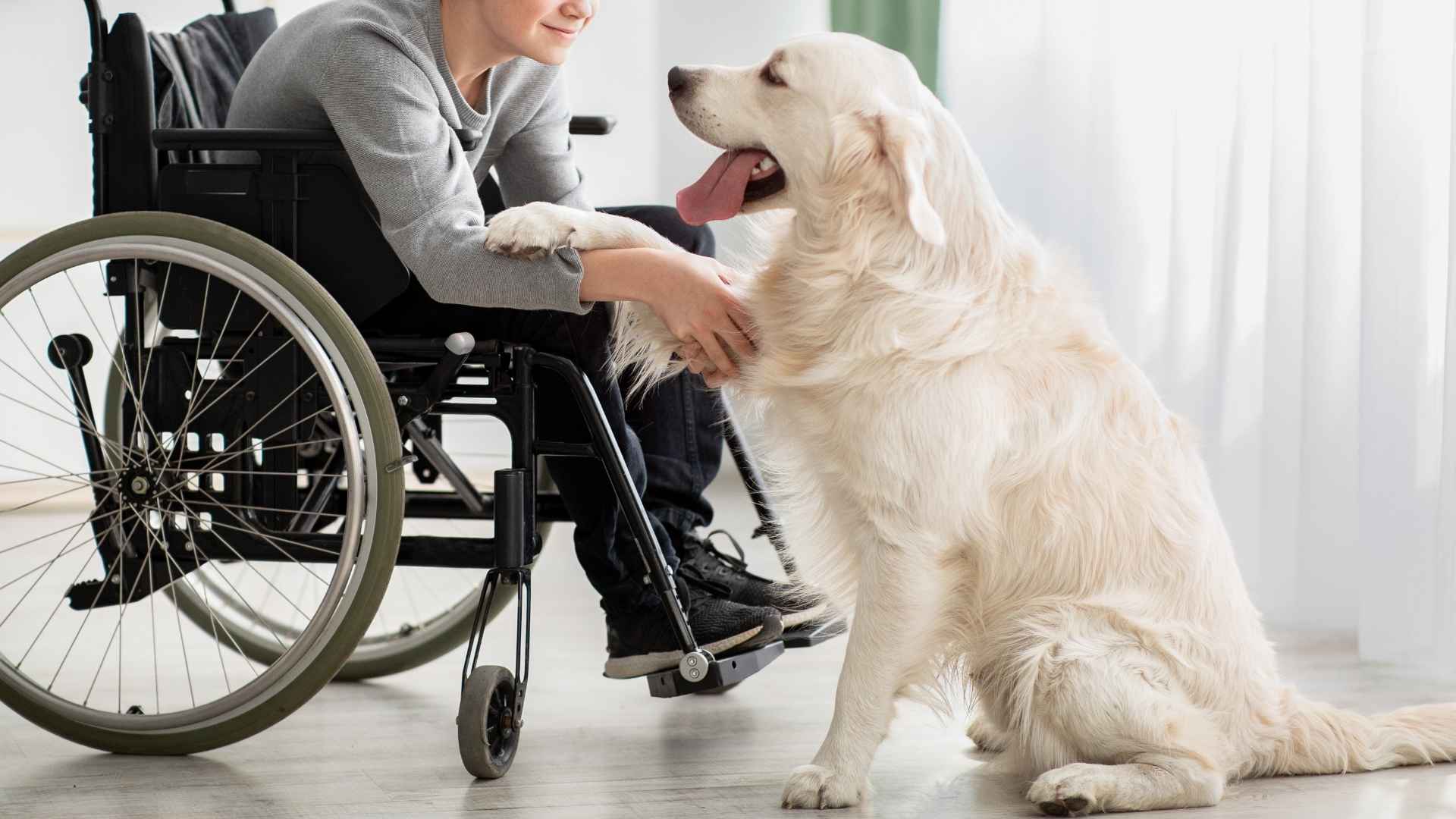Imagine having a loyal friend by your side who understands your emotions without you saying a word—someone who knows when you’re anxious, offers comfort during a tough day, and celebrates your wins with a joyful wag. That’s the magic of a companion service dog.
These incredible canines aren’t just pets—they’re specially trained to assist individuals with physical or mental disabilities, enabling them to live more independently. These dedicated animals support their owners with everyday activities and can be trained to help those with conditions such as diabetes, epilepsy, or PTSD.
But not all breeds are built for the job. These dogs possess a unique mix of intelligence, calmness, and empathy. Today, we’ll explore the most trusted and loving dog breeds chosen to be lifelong companions for those in need. They’re more than helpful—they’re heartwarming, intuitive, and devoted beyond words. Ready to meet your potential furry soulmate?
Companion Service Dog Breeds
1. Labrador Retriever
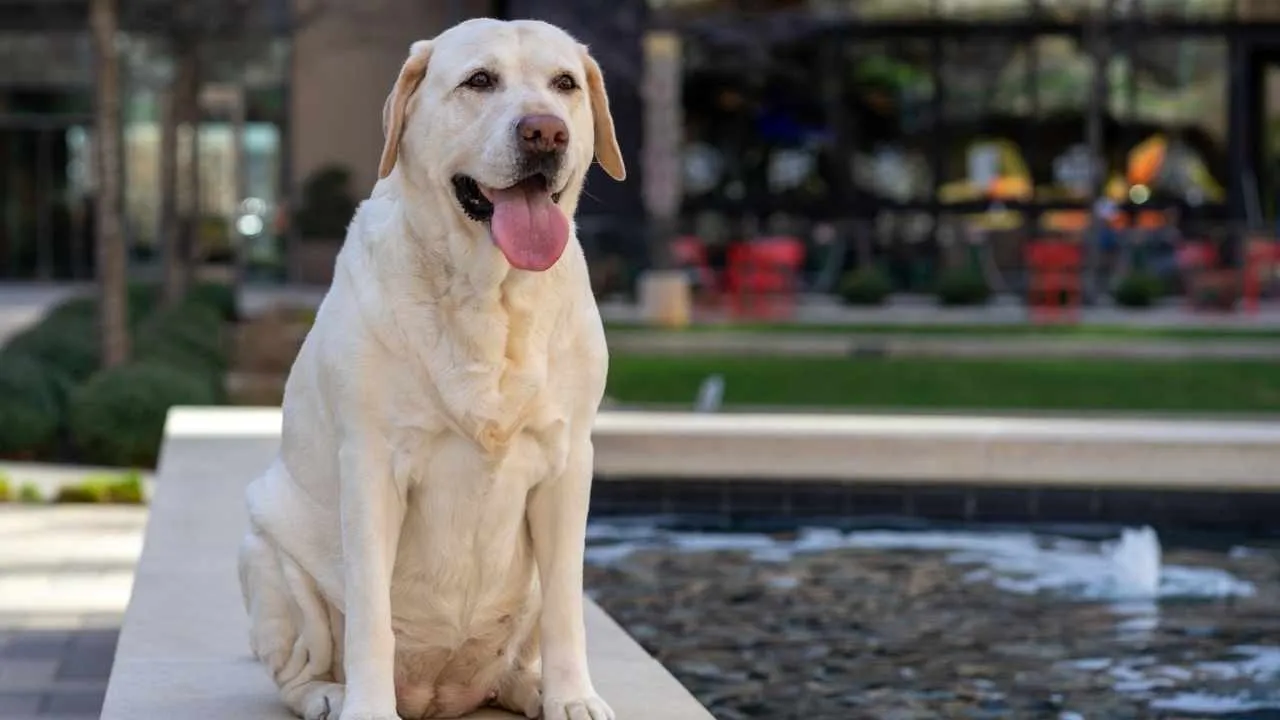
Labrador Retrievers are among the most popular service dog breeds for a reason—they’re incredibly affectionate, intelligent, and easy to train. Their calm and gentle temperament makes them dependable in various situations. Because of these qualities, many Labs receive specialized training to excel as excellent service dogs or to assist in search and rescue operations.
What really sets them apart is their eagerness to please. Labradors are happiest when they have a job to do, especially if it involves being near their person. Whether it’s guiding the visually impaired, assisting with mobility, or simply providing emotional support, Labs excel at tuning into human needs. This breed makes good therapy dogs.
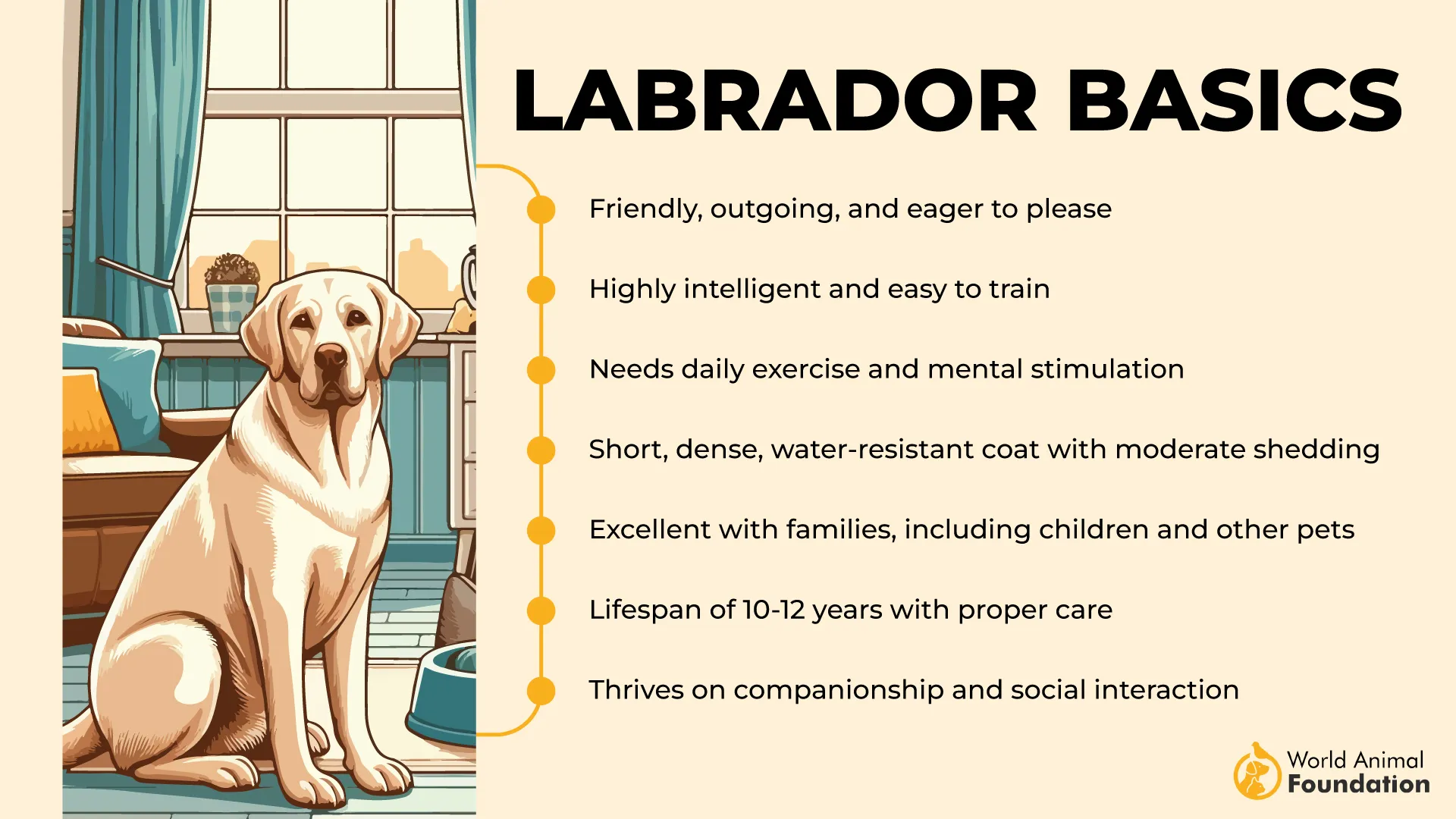
Plus, their friendly demeanor makes them great in public settings where a calm presence is essential. Labrador Retrievers are low-maintenance when it comes to grooming, but they do shed quite a bit. Regular deshedding and brushing will be essential to keep their coat healthy and minimize loose hair.
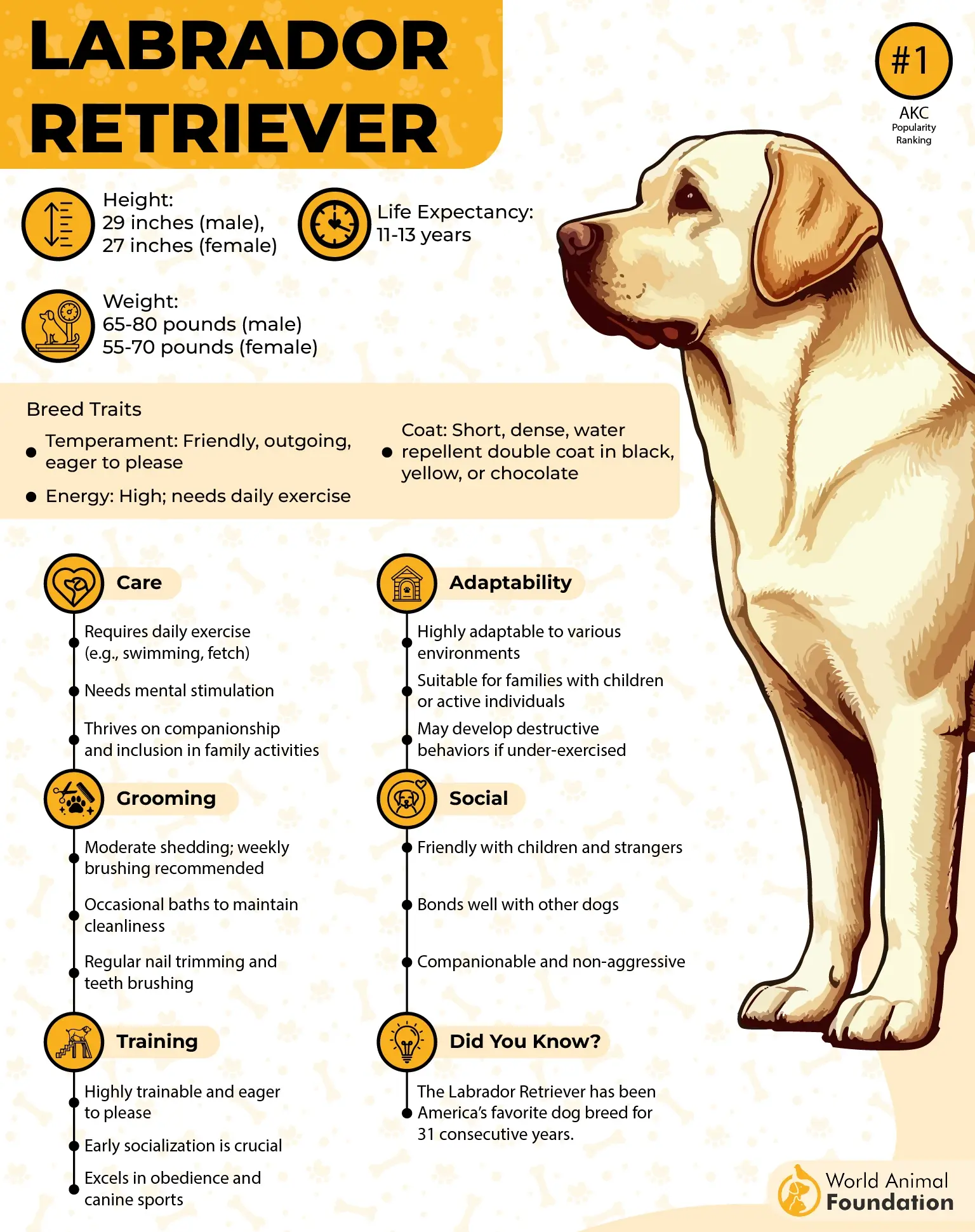
Labradors are natural swimmers and love being in the water, making it an excellent form of exercise for older dogs or those with joint problems. To stay happy and healthy, Labradors require the right balance of mental and physical activity, with at least two hours of exercise each day, says PetPlan.
Common Service Roles
Guide dogs for the visually impaired
Mobility dog breed (e.g., retrieving objects, opening doors)
Psychiatric service dogs for PTSD
Diabetic and seizure alert dogs
Labs are like the ultimate best friend — supportive, dependable, and always ready to help with a smile (and maybe a wagging tail).
2. Poodle
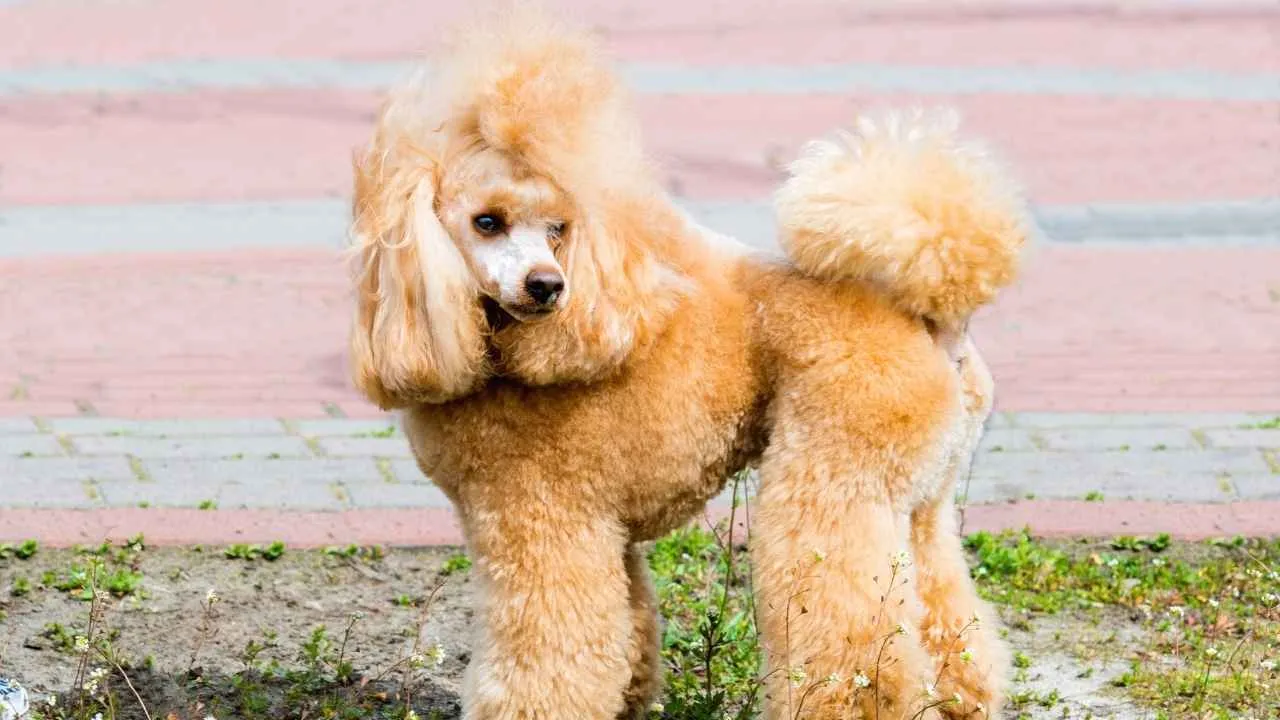
Poodles are often underestimated because of their fancy appearance, but make no mistake — they’re one of the smartest dog breeds out there. This intelligence, paired with a gentle personality and a strong desire to work, makes them excellent service animals.
Poodles come in three sizes — Standard, Miniature, and Toy. The Standard is the largest, while the Toy is the smallest, but all have the same distinctive features.
One huge bonus? Poodles have a hypoallergenic coat, which makes them a great option for individuals with allergies. Whether it’s the Standard, Miniature, or Toy variety, Poodles can be trained for various support roles — from detecting medical conditions to helping with anxiety.
Common Service Roles
Psychiatric service dogs
Diabetic alert dogs
Autism support dogs
Mobility and task support (especially Standard Poodles)
Think of the Poodle as the honor roll student who’s also stylish — always sharp, calm, and incredibly caring.
3. Golden Retriever

Golden Retrievers are often called the “perfect family dog,” but their gentle spirit and strong work ethic also make them ideal service animals. Originally bred for hunting and retrieving game, Goldens have a calm demeanor and emotional intelligence.
Goldies are incredibly empathetic, which makes them ideal for individuals with emotional or psychological support needs, as well as physical disabilities. It’s no wonder that the Golden Retriever ranks among the top ten most popular dog breeds in the United States!

They’re highly trainable and always eager to form close bonds with their handlers. With a soft expression, wagging tail, and gentle touch, Goldens have a way of making people feel safe and understood, even on tough days.
They are highly energetic and need plenty of exercise, and should not be left alone for extended periods, as they can be prone to separation anxiety.
Common Service Roles
Autism service dogs
PTSD and emotional support dogs
Mobility assistance
Therapy and facility dogs
Golden Retrievers have hearts as golden as their coats — full of warmth, understanding, and an unshakable sense of loyalty.
4. German Shepherd
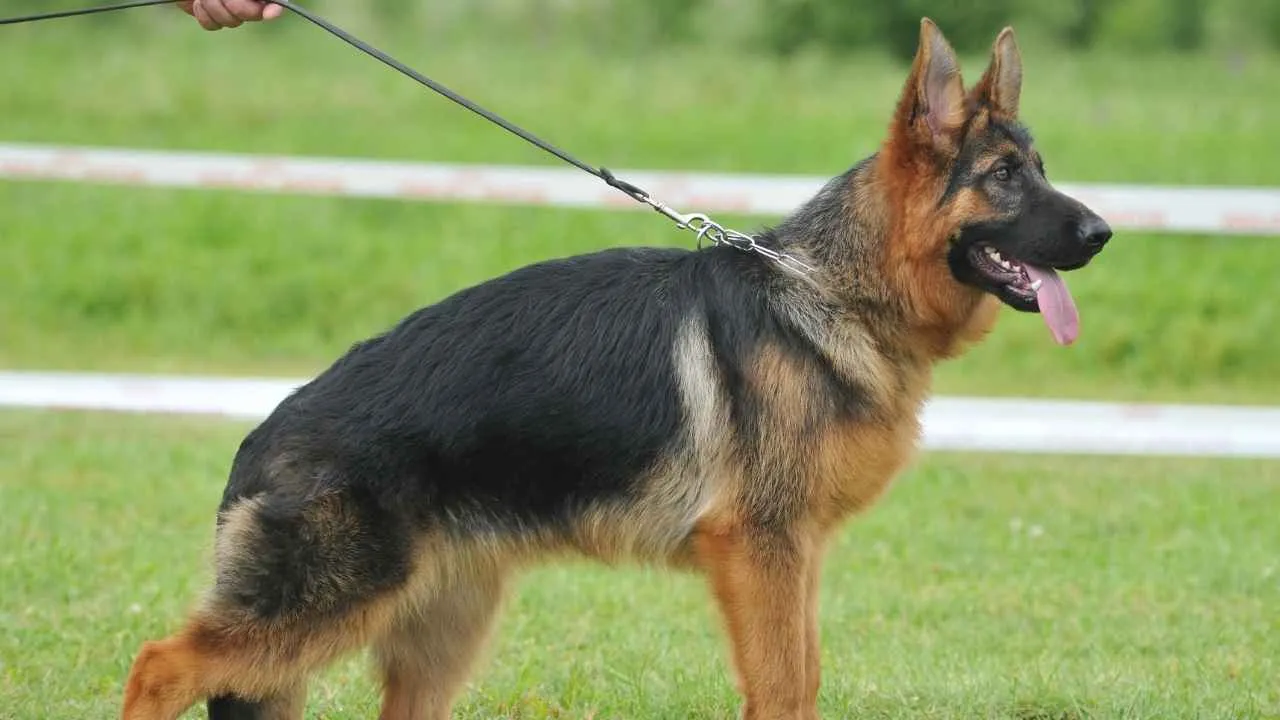
German Shepherds are the heroes of the dog world — smart, strong, and deeply loyal. Known for their work in police, military, and rescue roles, they also make excellent service and companion dogs, especially for individuals who need a dependable partner with a strong protective instinct.
While they can be serious when working, German Shepherd dogs have a soft, affectionate side at home — loyal to the core and always eager to stay close. Germans are famously trainable. Their intelligence allows them to learn complex commands quickly, and they are incredibly responsive to their handler’s cues.
They bond closely with their humans and are naturally protective, which is a great comfort to individuals dealing with anxiety, PTSD, or those who simply feel safer with a confident companion nearby.

Common Service Roles
Mobility support and brace dogs
PTSD and psychiatric service dogs
Autism support dogs
Guide and hearing dogs
If a German Shepherd dog is by your side, you’ve got a bodyguard, therapist, and best friend all in one furry package.
5. Pomeranian
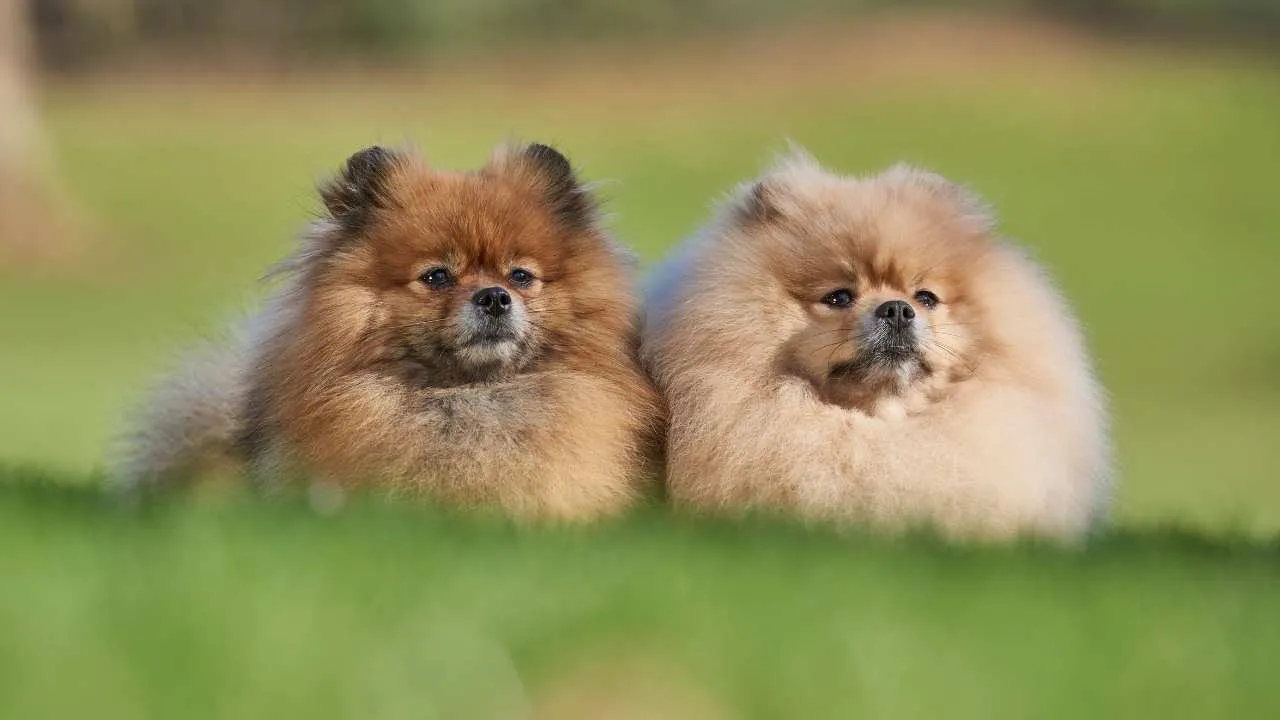
Tiny but mighty, the Pomeranian might not be your first thought when it comes to service dogs, but don’t underestimate this puffball!
While they aren’t built for mobility or guide work, this small dog makes a fantastic emotional support animal and is often trained specifically as a psychiatric service dog for anxiety, depression, and PTSD.
What Poms lack in size, they make up for in heart and personality. They’re highly alert and emotionally in tune with their humans. Their small size also makes them ideal for people in apartments, frequent travelers, or those who simply need a discreet but devoted support buddy.
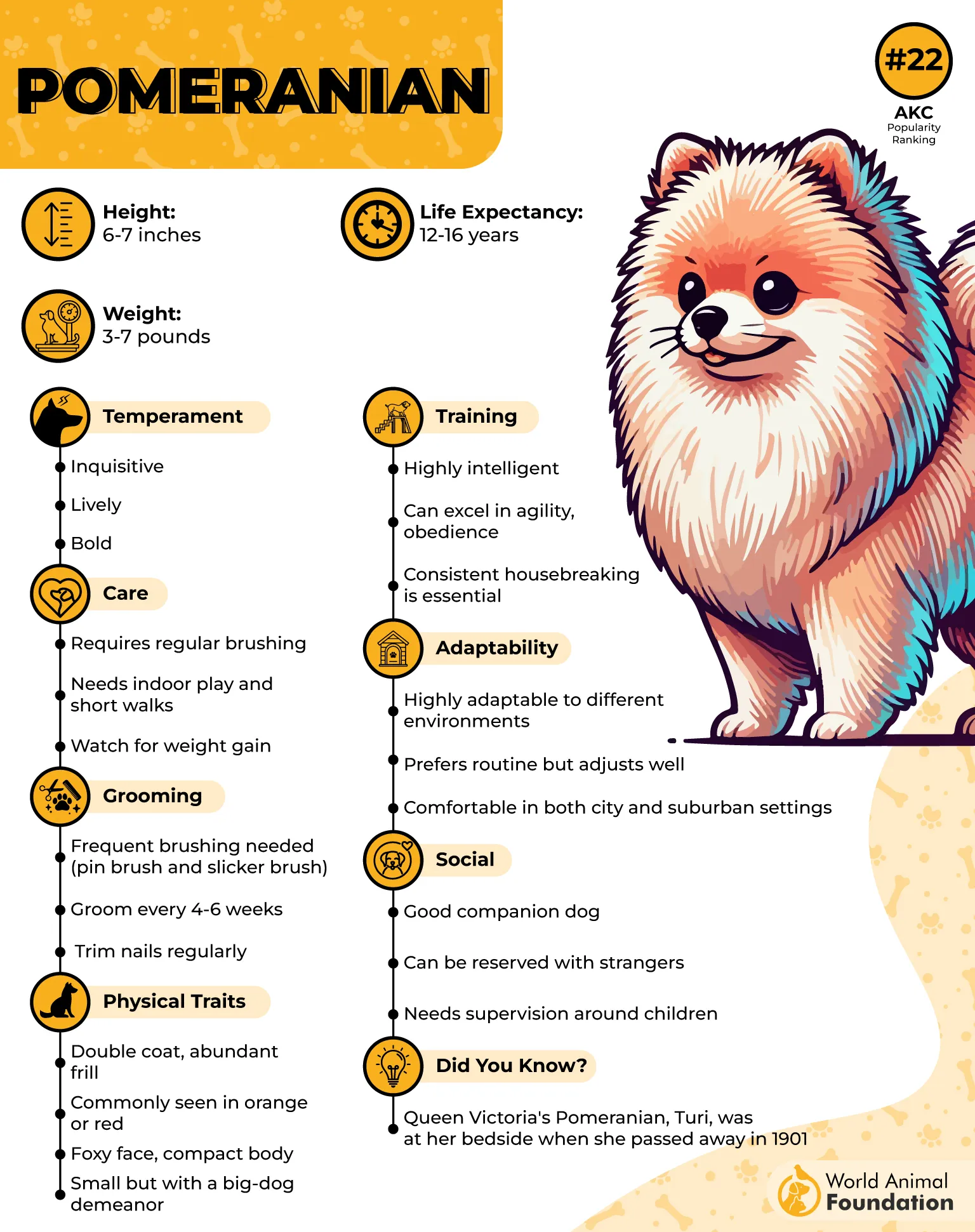
Pomeranians are easy to carry, adapt well to different environments, and can be trained to provide comforting behaviors, such as interrupting anxiety spirals or alerting to emotional distress.
Common Support Roles
Emotional support animals (ESA)
Psychiatric service dogs
Excellent alert dogs for anxiety or panic disorders
Tiny enough to fit in your tote bag but big enough to carry a whole lot of love — that’s a Pom for you.
6. Border Collie
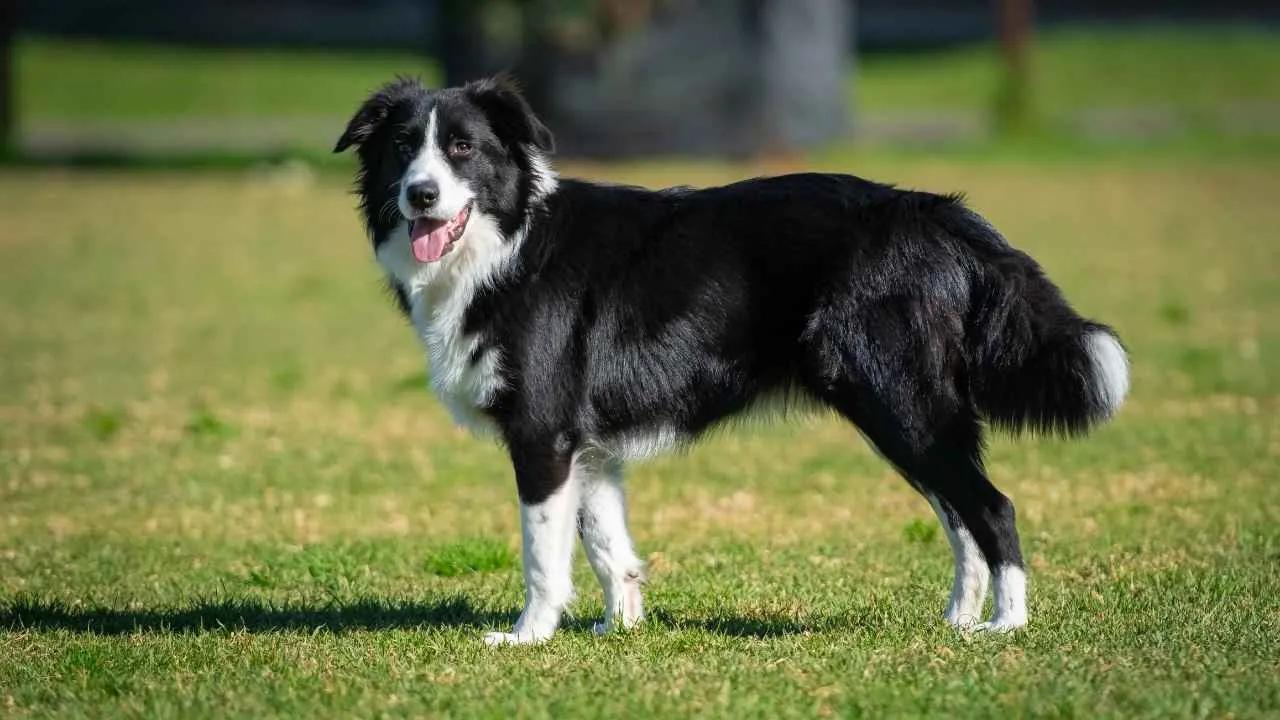
Border Collies are the Einsteins of the dog world. Originally bred for herding sheep, they thrive when they have a job to do — and as service dogs, they rise to the challenge with enthusiasm and precision. They’re not just smart; they’re incredibly in tune with their humans.
Originally hailing from the border region between Scotland and England, this breed is equipped with a dense double coat that offers protection against all types of weather conditions.
With their unmatched intelligence and work ethic, Border Collies are ideal for tasks requiring quick thinking and attention to detail. They’re excellent at learning complex routines, detecting medical alerts, and offering emotional support. While they do need a lot of stimulation, they form very strong bonds and are fiercely loyal.
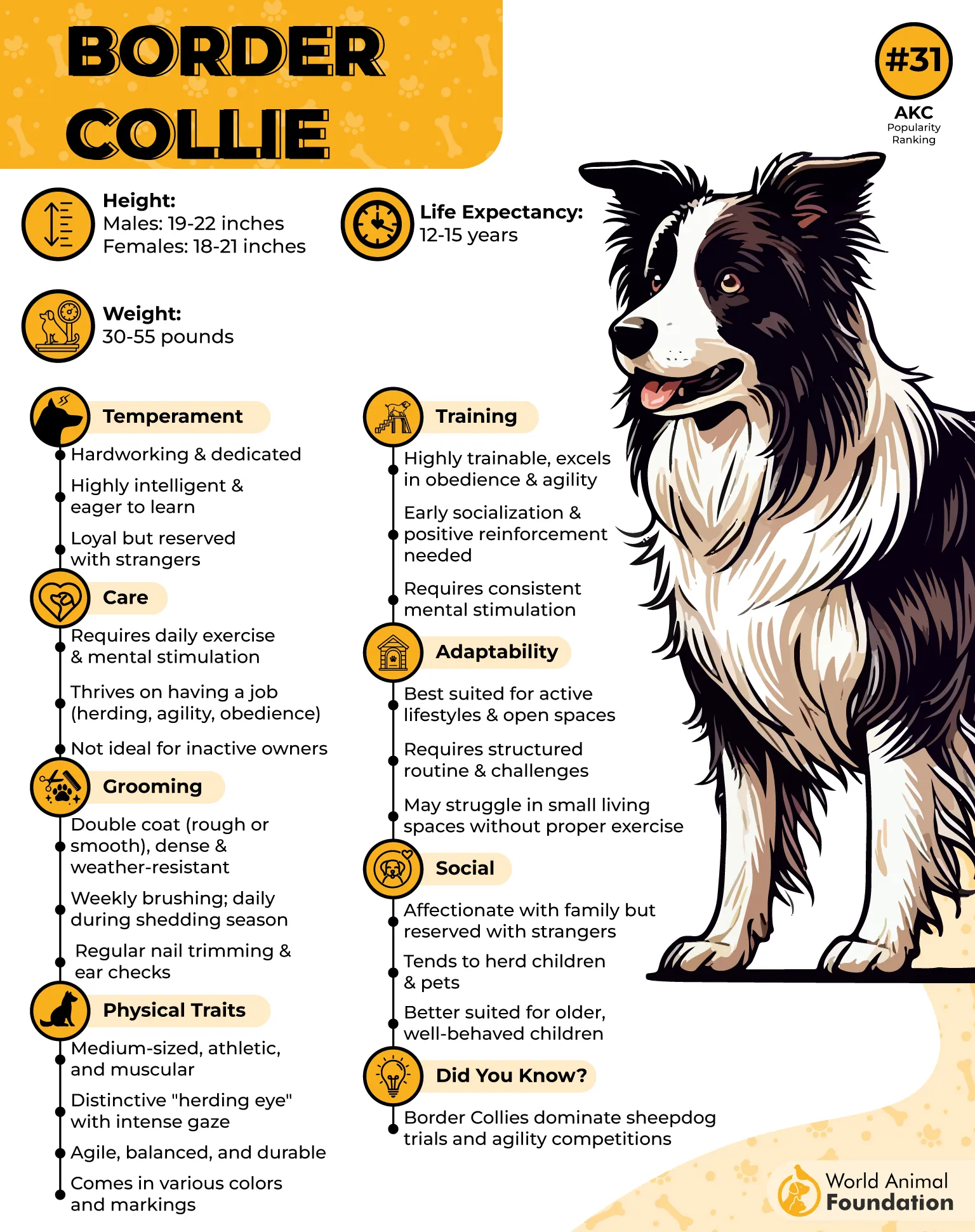
According to the American Kennel Club (AKC), they are friendly and affectionate with those they know, but may be reserved or cautious around strangers.
Common Service Roles
Medical alert dogs (e.g., seizure, diabetes)
Psychiatric service dogs
Hearing assistance
Emotional support for high-functioning individuals
They’re especially helpful for individuals who need a dog that can stay alert and responsive throughout the day — they don’t miss a beat.
If brains, focus, and heart had a dog form, it’d be a Border Collie. Just be ready to keep up!
7. Bernese Mountain Dog
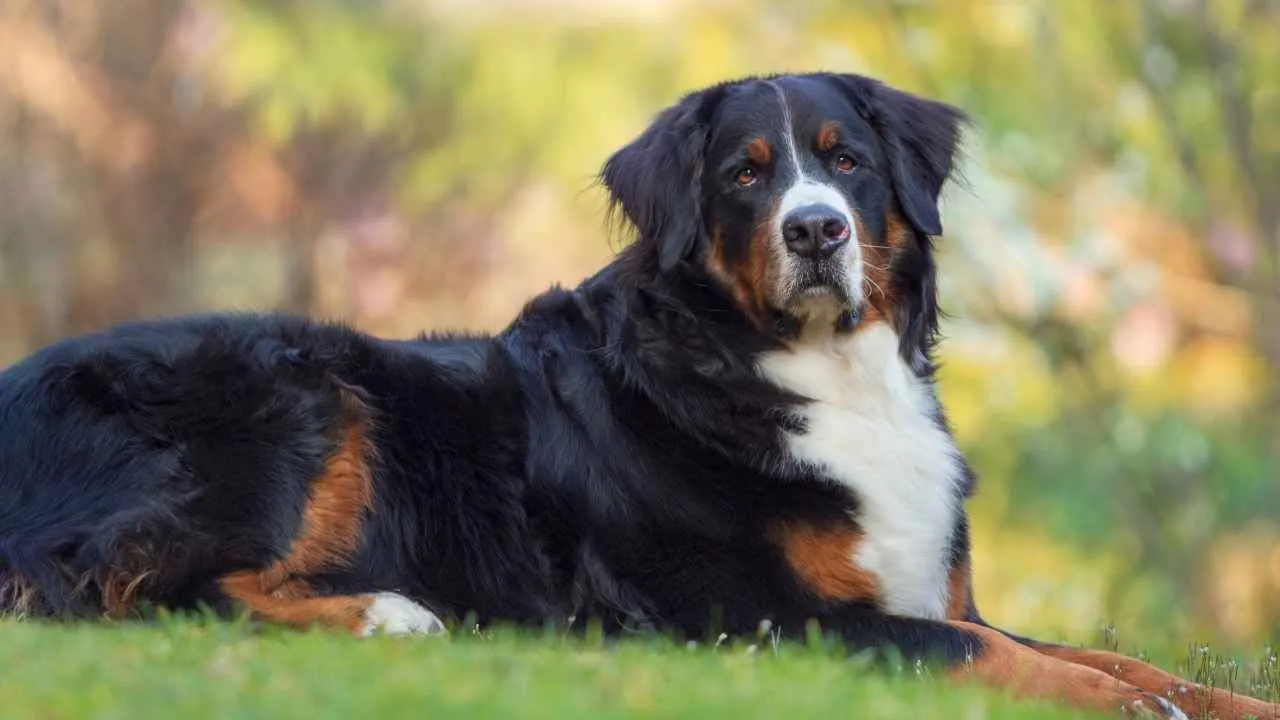
Big, beautiful, and bursting with charm, Bernese Mountain Dogs are true gentle giants. Originating from the Swiss Alps, where they worked as farm dogs, this large dog’s calm temperament and people-pleasing nature make them surprisingly effective as emotional support and mobility service dogs.
Bernese Mountain Dogs may not be marathon runners, but they’re wonderful, steady companions. Their large size makes them great for mobility support, such as helping someone stand or walk with balance. Their naturally calm demeanor is soothing, which is ideal for individuals with anxiety, autism, or PTSD.
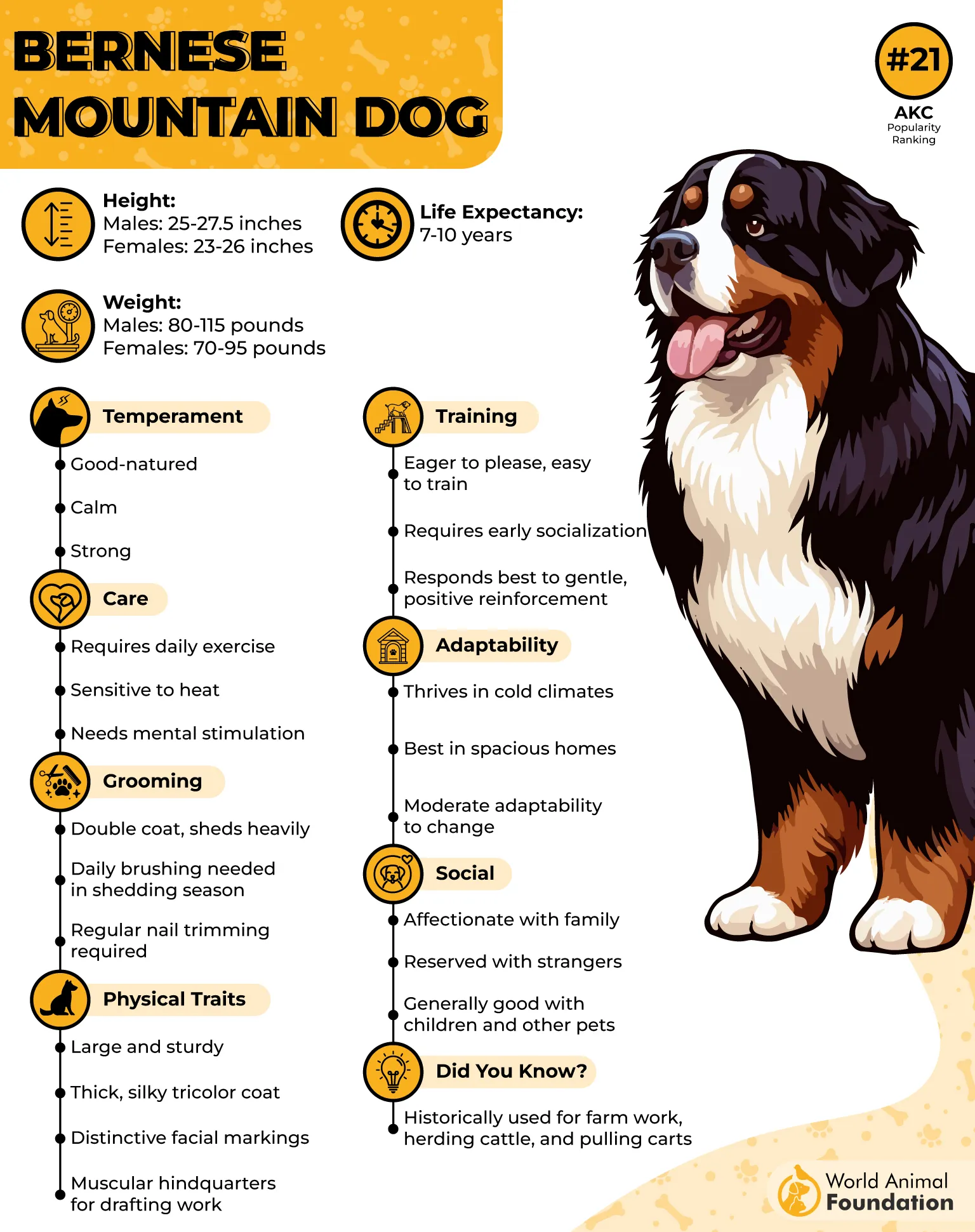
Their size alone can be comforting in stressful environments, like having a weighted blanket that loves you back. These dogs especially enjoy obedience training, tracking, drafting, and herding, which allow them to tap into their instincts and keep their minds active.
This breed is known for getting along wonderfully with children and families. While their large size gives them an imposing presence, their gentle and affectionate nature ensures they’re never threatening.
Common Service Roles
Mobility assistance
PTSD and emotional support
Autism support
Therapy dogs in hospitals and care homes
A Berner doesn’t just walk into your life — they lumber in, steal your heart, and never let it go.
Conclusion
Choosing the right dog for service dog work depends largely on the individual’s needs and living situation. Whether you’re looking for guide dogs for the hearing impaired, dogs to assist with balance issues, or companions trained to help with mental disabilities, there’s a great breed out there for you. From Great Danes—an excellent choice for those needing stability—to smaller breeds like Pomeranians that are a good fit for a small apartment, popular service dog breeds vary widely.
These dogs are specifically trained to perform tasks that serve and support their humans in ways that other animals simply cannot. With proper service dog training, your four-legged friend can become an excellent service dog, offering not just practical help but also emotional support and companionship. In the end, the best service dogs are those that are matched thoughtfully with their handlers, making them both a capable assistant and a loyal pup.


